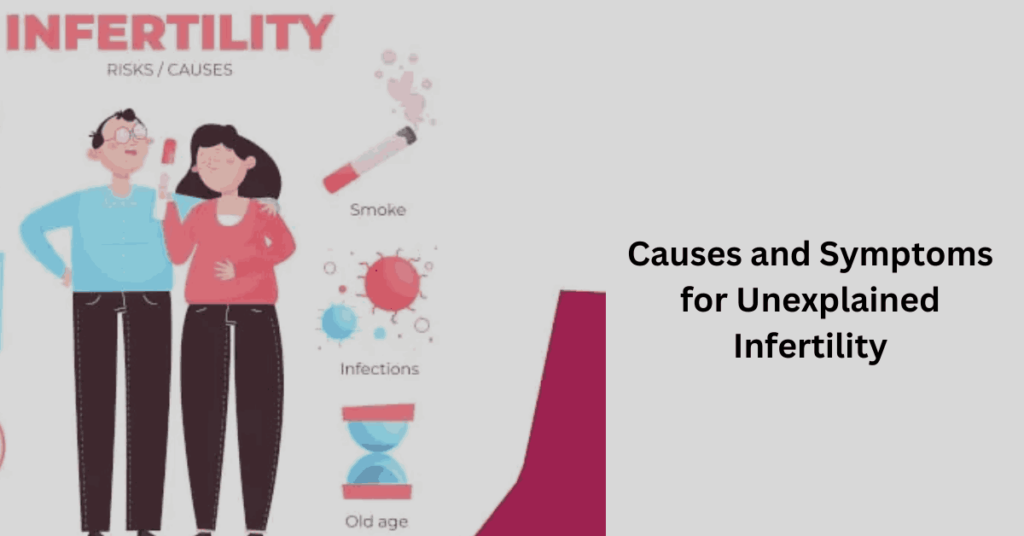Causes and Symptoms for Unexplained Infertility

Unexplained infertility is a term medical professionals use when they cannot find a clear cause for a couple’s inability to conceive despite extensive investigation.
In a small percentage of these cases, doctors can’t identify a specific cause, leading to a diagnosis of unexplained infertility. This includes normal results from fertility tests, such as ovulation, sperm function, and fallopian tube patency.
Table of Contents
Potential Causes of Unexplained Infertility
While the exact causes remain elusive in unexplained infertility, here are some potential causes of unexplained infertility:
Imperfections in the Fertilization Process
Fertilization is a complex process that requires several precisely timed steps, and even minor disruptions can prevent conception. Failed fertilization may occur in 8.4%-22.7% of IVF cycles for couples with unexplained infertility.
This suggests that undetectable defects in the reproductive process might prevent successful fertilization, even when all standard fertility tests give normal results.
Egg Quality Issues
Even if all other factors seem normal, poor egg quality can hinder the interaction between sperm and egg during fertilization, leading to failed conception or poor embryo quality. Subtle defects such as DNA fragmentation in spermatozoa can disrupt various fertilization processes. Factors like diet and genetics can also influence egg quality.
Sperm Function Issues
Even if the sperm count and motility are normal, there could be underlying issues with the sperm’s ability to fertilize an egg that isn’t detectable via standard tests. Conditions such as premature ejaculation or genetic diseases can hinder the sperm’s journey to the female reproductive tract.
Long-term illnesses like kidney failure, childhood infections, and hormonal or chromosomal imbalances can impact sperm production. Sperm dysfunction can also be due to immunological causes. Poor sperm shape or morphology is another factor that could lead to fertility problems.
Undetected Endometriosis
Endometriosis, a condition where tissue similar to the uterine lining grows outside the uterus, can subtly interfere with fertility. Even mild cases can contribute to infertility due to the inflammation and scarring they cause.
Silent or hidden endometriosis, which presents no symptoms, can be challenging to diagnose and could be a common factor in unexplained infertility.
The mechanisms by which endometriosis affects fertility are not fully understood, but it may disrupt egg quality, sperm function, or implantation. Treatment options include laparoscopic surgical removal of endometriotic lesions and ovarian stimulation.
Immune System Disorders
Immune system can disrupt the intricate balance of the immune system, causing pregnancy failure and infertility. Autoimmune disorders, where the body’s immune system mistakenly attacks healthy cells, are often behind these issues.
Conditions such as type 1 diabetes and celiac disease have been linked to infertility. The immune system can interfere with fertility by attacking sperm or eggs, preventing them from functioning correctly.
Symptoms of Unexplained Infertility
The signs that can hint at potential underlying unexplained infertility issues could include irregular menstrual cycles. This might indicate ovulation problems. Another symptom might be painful periods, which could be a symptom of conditions like endometriosis.
Recurrent miscarriages can also be a sign which might signal an immunological disorder or chromosomal abnormalities. For men, symptoms of unexplained fertility may include erectile dysfunction, reduced sexual desire, or problems with ejaculation.
These could suggest potential sperm function issues. These symptoms can also occur in men with normal fertility, making diagnosis challenging.
Work With an Infertility Specialist
Specialists have a deep understanding of the complexities of conception and can offer advanced diagnostic tools and treatments not available to general practitioners. They are experienced in identifying subtle fertility issues that might be overlooked otherwise.
Infertility specialists can provide a range of treatment options, including medication, surgery, and assisted reproductive technologies like IVF or IUI. They provide personalized care plans tailored to each couple’s unique situation, potentially improving their chances of achieving a successful pregnancy.
latest Post


